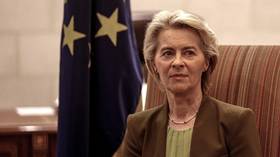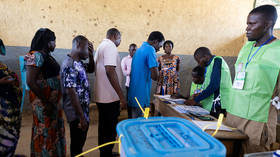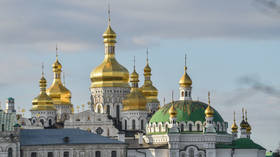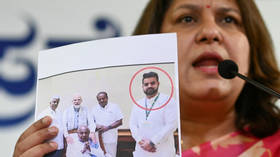Battle Royale: How a king ended up on the ballot in India

Yaduveer Krishnadatta Chamaraja Wodeyar is the scion of a 500-year-old royal family. He’s also the candidate of India’s ruling Bharatiya Janata Party (BJP), led by Prime Minister Narendra Modi, in the April 26 parliamentary election in Mysuru (Mysore) in the southern Indian state of Karnataka.
“How handsome he looks,” say rural women voters during his roadshows.
Yaduveer, the 27th head of the Wodeyar royal family in Mysuru is a 32-year-old who studied English and Economics at University of Massachusetts, Amherst, in the USA. “Today, there is no King or subject,” he told Russia Today. “We are all one. The Constitution has given us equal rights.”
Tell that to his voters.
First-time voter Chandrakanth was excited to see Yaduveer in person, for it is rare for the royals to appear in public; the only exception being the region's biggest religious festival, Dasara. “I am very happy to see the King in close proximity,” he said, and declared that his first vote would not go wasted.
Madegowda, a farmer in Chamdudeshwari on the outskirts of Mysuru who witnessed the durbar (court) of Jayachamarajendra Wodeyar (father of Yaduveer’s predecessor, Srikantadatta Narasimharaja Wodeyar) in the early 1970s, says that no-one should have contested against the king. “He should have been elected unopposed,” he felt.
“I am overwhelmed by the response from the people,” Yaduveer says, greeting the public as they wave and shout “Maharaja, Maharaj” at his roadshow.
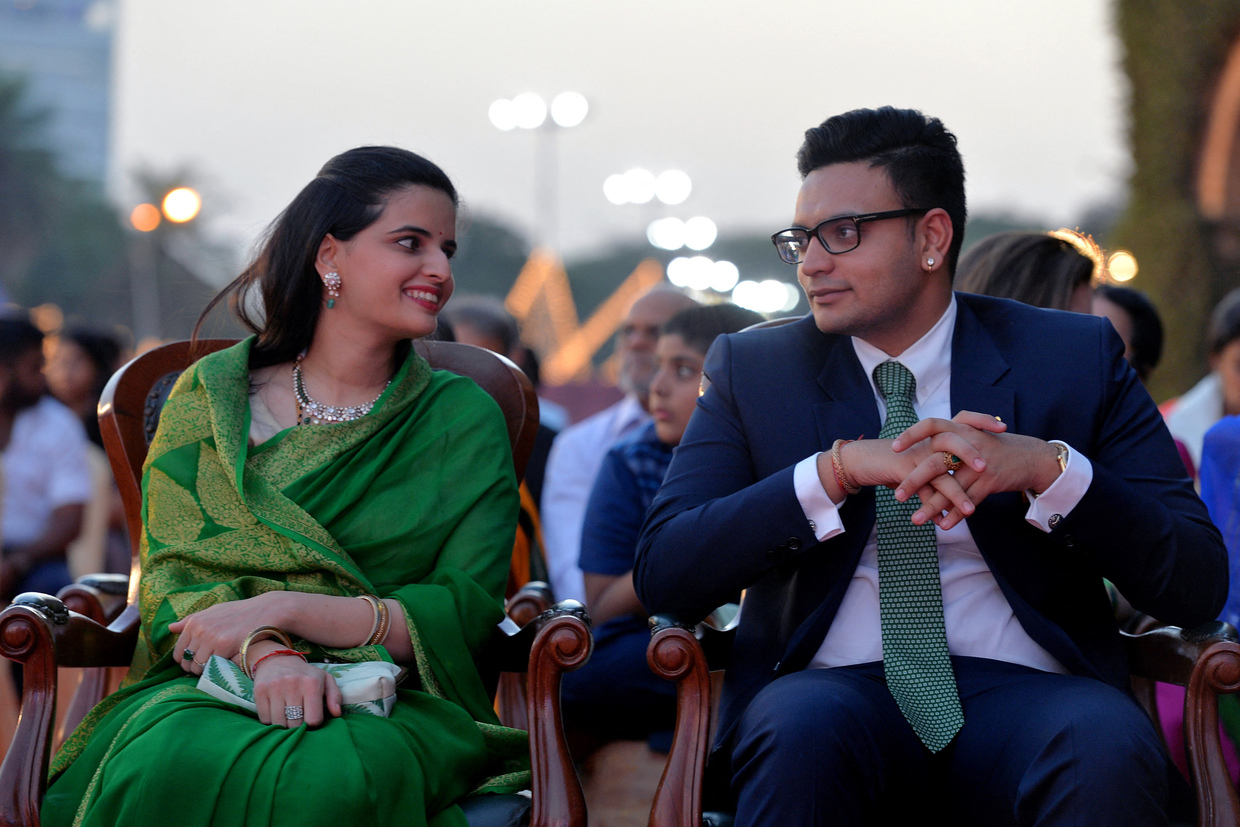
Yaduveer is not the first royal scion to enter the rough and tumble world of Indian elections. His great-grand-uncle and predecessor, Srikantadatta Wodeyar, was the first; he contested from the royal city of Mysuru, about 140 km southwest of Bengaluru, the capital of Karnataka, known as India’s silicon valley.
Srikantadatta Wodeyar served three five-year terms as a member of the Indian National Congress. In 1991, however, he contested as a BJP candidate and lost. He switched back to Congress, won in 1996 and 1999, but lost in 2004 as a BJP member.
A 500-year-old dynasty
The Wodeyars are one of India’s most prominent royal families and respected by the people of Karnataka for their welfare measures, development, and reformist approach over the centuries. They built the first-ever reservoir in central Karnataka, named the Vani Vilas Sagar, built the more famous Krishna Raja Sagar Dam across the river Cauvery, and established educational institutions, including the University of Mysuru and Mysuru Medical College.
The Wodeyars sowed the seeds of India’s public sector defense undertaking, Hindustan Aeronautics Limited (HAL), and generously donated funds and land to set up the premier Indian Institute of Science. They were responsible for the first hydroelectric power station in Asia. Bengaluru was the first city in Asia to have streetlights in the early 20th century. They also established the first steel and iron factory.
The Wodeyars were also the first in the country to give women the equal right to vote. They established a representative assembly in 1881. They revived the world-famous Mysore Silk.
The role of the Wodeyars is now largely ceremonial; the princely states were abolished after India gained independence from the UK.
Citizens in the old Mysuru state, the geographical part of Karnataka, which was under Wodeyar control prior to the 1956 reorganization of States, still revere the Wodeyars as being on par with God. (In 1956 Karnataka, comprised predominantly of Kannada speakers, came into existence).
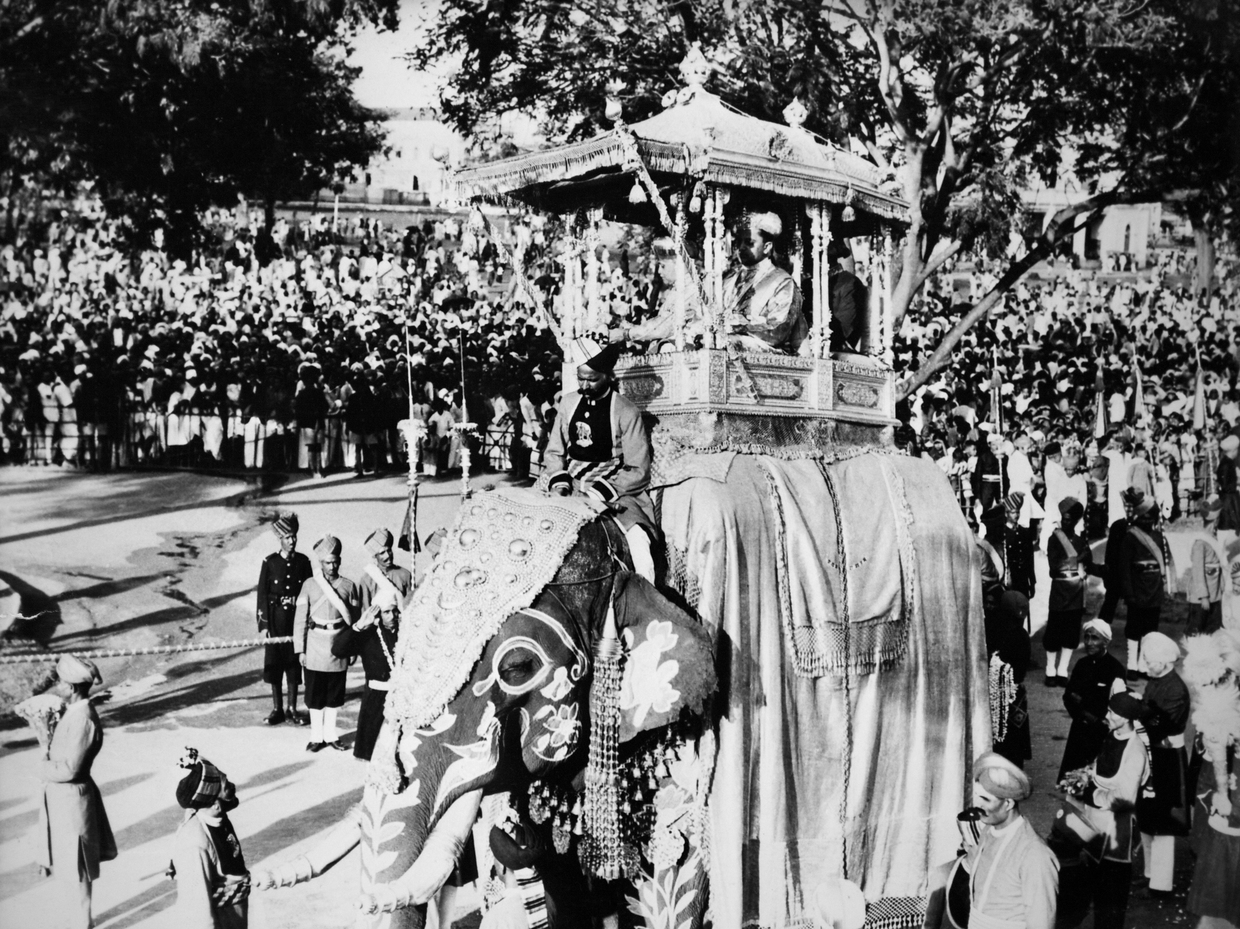
Rivals dare not criticize him
Aware of his legacy and heritage, Yaduveer cheerfully plunged into politics. By entering this domain, one can do better social service and be close to the people, he told RT. “I was mentally prepared that a day would come to do this,” he said.
Yaduveer said he chose the BJP because he was influenced by the Prime Minister and his work ethics over the past ten years, as well as by the Rashtriya Swayamsevak Sangh (RSS) ideology.
In fact, Mysuru had a sitting BJP member in the Lok Sabha (lower house), Pratap Simha, who was jettisoned because of Yaduveer’s likelihood of winning and the respect that the family commands even today (perhaps because of this controversy).
Even his Congress rivals think twice about attacking the Wodeyar family. Any negative comments are not taken kindly by voters, although the royal family itself is always silent on such criticism.
Yaduveer says any criticism is welcome as long as it is civil and constructive, geared at helping society or at correcting oneself.
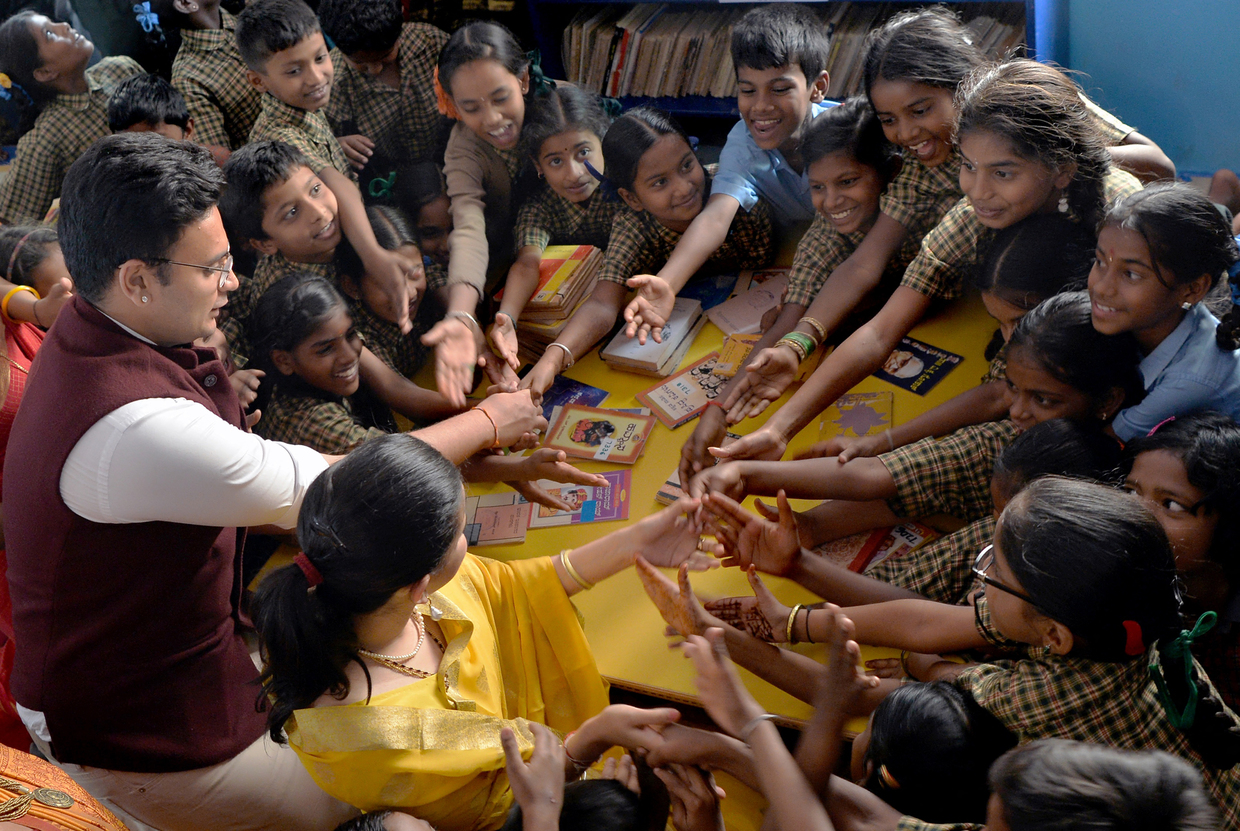
Yaduveer’s rival M Lakshmana, an engineering graduate, says that it is a fight between the King and a commoner. The scion, however, responded by saying both have equal rights. “I am also going to people seeking votes and have tried to understand their problems,” Wodeyar says. “Elections give me that opportunity. It is for the people to accept or reject me.”
Jettisoned MP Pratap Simha sarcastically remarked that now the king will come to hear the people’s grievances, and that he has to come out of the palace. He also said the king would resolve a number of properties in dispute between the government and the palace, in favor of the government.
Dayashankar Maily, a senior journalist closely associated with the royal family, says that the reverence for the royals remains the same. “People will for sure vote for him this time, because he is the royal scion,” he says. “But if he is to get re-elected, Yaduveer has to perform.”
A number of people, the young, the aged, both men and women, and even minors too young to vote, have come to see Yaduveer during his campaign. Most people who spoke to RT were surprised to see the ease with which the “Maharaja” mingled and spoke.
All this will make his electoral debut a little easier, but last minute strategies could upset anyone.
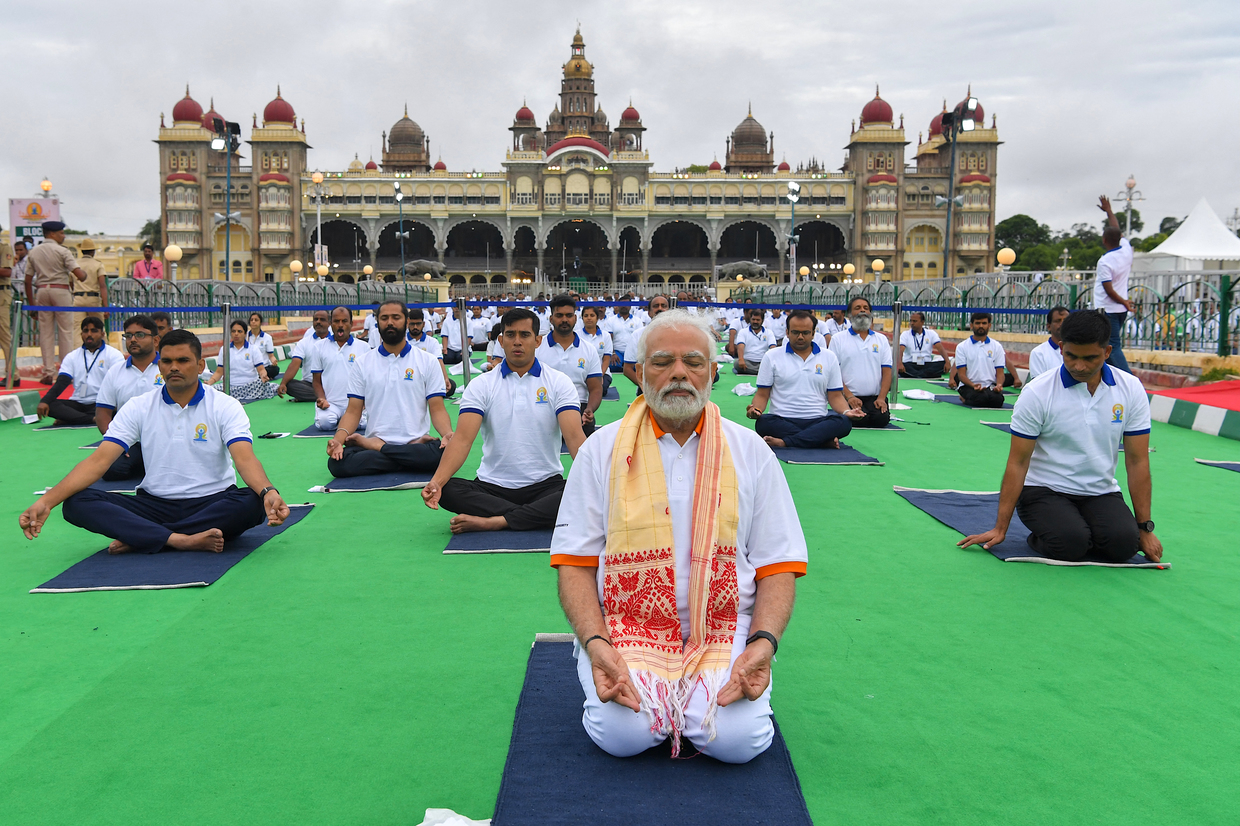
Karnataka Chief Minister Siddaramaiah, long known for opposing the royal family, has taken this election seriously. He is also a native of Mysore and wants to win this election for Congress at any cost, to nip any post-election challenge to his position.
The Karnataka government is fighting a legal battle to take over Bengaluru Palace, which belongs to the royal family. Spread over hundreds of acres in the middle of the city, the property is estimated to be worth more than Rs one trillion ($12 billion).
Recently, the royal family handed over 15 acres of land for road widening; the government agreed to give the family Rs 14 billion ($168 million) worth of transferable development rights.
The ancient Curse on the Royals
The 500-year-old dynasty was cursed in 1612 by Queen Alamelamma. The story is that Raja Wodeyar, one of the vassals of the later Vijayanagara kings, dethroned Tirumalaraya, the representative of the Vijayanagara empire, and declared himself king.
After hearing about this, Alamelamma, who was decorating the deity Adinayaki at the Sri Ranganatha temple every Tuesday with her gold in Srirangapatna (about 15 km from Mysuru), fled with her ornaments to Talakadu.
Raja Wodeyar sent his soldiers to capture her. Seeing the soldiers, Alamelamma jumped into the Cauvery river and cursed them: “May Talakadu become a barren expanse of land, Malangi turn into a whirlpool, and may the kings of Mysore never beget children for all eternity.”
Raja Wodeyar installed a golden statue of Alamelamma in the palace, where she is worshiped even today. Legend has it that Raja Wodeyar’s only son died a few months after the curse.
Even in the modern era, the Wodeyars have a male child only once every two generations.
He adopted one of his nephews to succeed him. The successor had an heir, but not his son. This is how Srikantadatta Narasimharaja Wodeyar had no heir; his father Chamarajendra Wodeyar (whose 1970s durbar was mentioned earlier) was adopted by Krishnaraja Wodeyar the fourth.
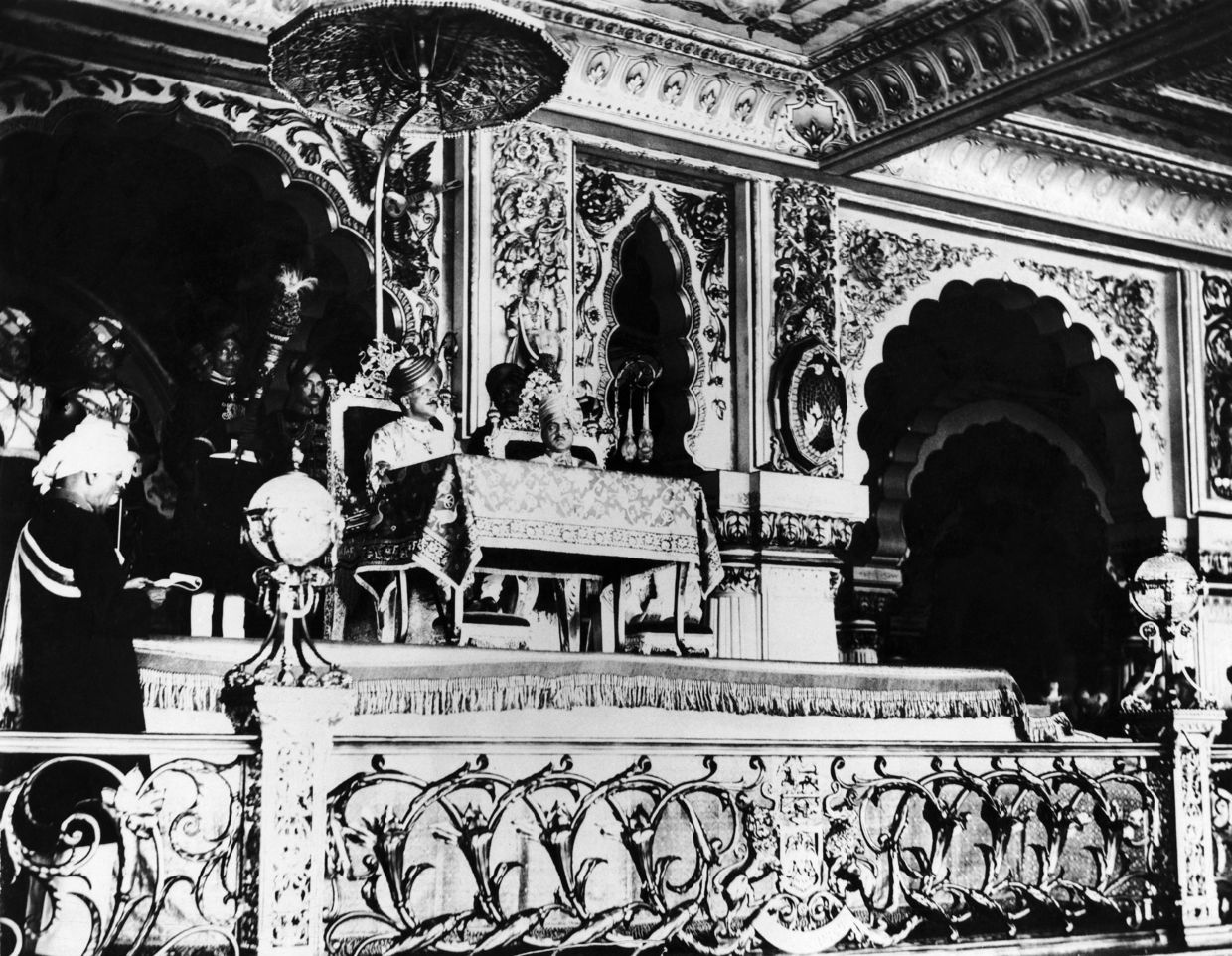
Maharaja in the making
On December 10, 2013, when 60-year-old Srikantadatta Wodeyar died without naming a successor, his spouse Queen Pramoda Devi chose the 22-year-old Yaduveer as heir.
Before becoming Yaduveer Krishnadatta Chamaraja Wodeyar, his name was Yaduveer Gopal Raj Urs. He was the only son of Swarup Anand Gopal Raj Urs and Princess Leela Tripurasundari Devi. Swarup Gopal Raj Urs was the grandnephew of Chamaraja Wodeyar, and the nephew of Srikantadatta Wodeyar.
On May 28, 2015, Yaduveer was crowned Maharaja after a series of elaborate rituals. He was married to Trishika Kumar in 2016. They had a boy, Aadyaveer Narasimharaja Wodeyar in 2017. If the legend of the curse continues, Aadyaveer will have no child and will have to adopt one.
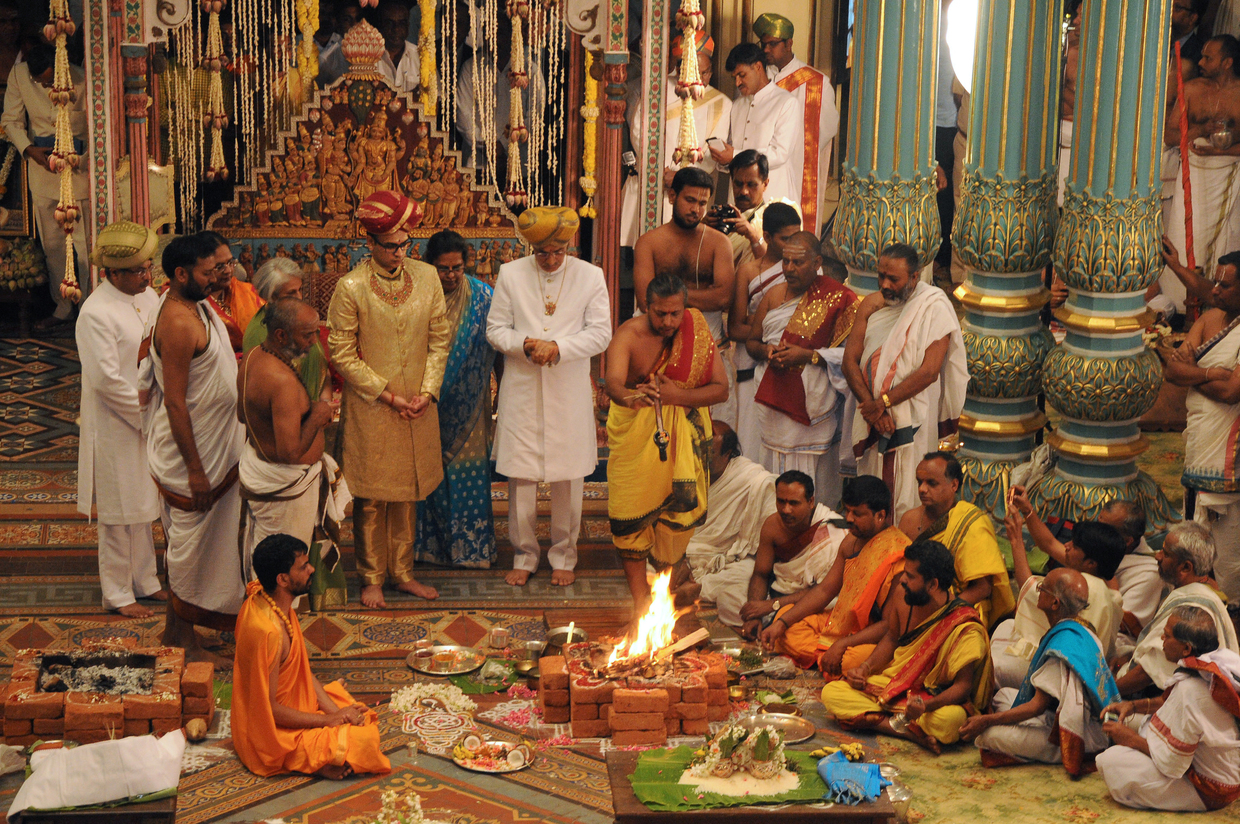
It was Wodeyars who introduced the world-famous Dasara festival, a colorful nine-day celebration in October of the Goddess Chamundeshwari, the presiding deity of the royal family.
The nine-day celebrations conclude with a grand jamboree where a decorated elephant carries a 750-kg golden throne of the Wodeyars (now in possession of the Government) holding an idol of the Goddess Chamundeshwari.
Hundreds of thousands come to witness the event. The scion performs a number of rituals besides holding a private durbar in his Amba Vilas Palace, also known as the Mysuru palace. It was built in 1912 at a cost of Rs 414.7 million ($5 million) and continues to be the biggest attraction for international tourists. Last year it attracted 3.3 million, the majority of whom were foreigners.









